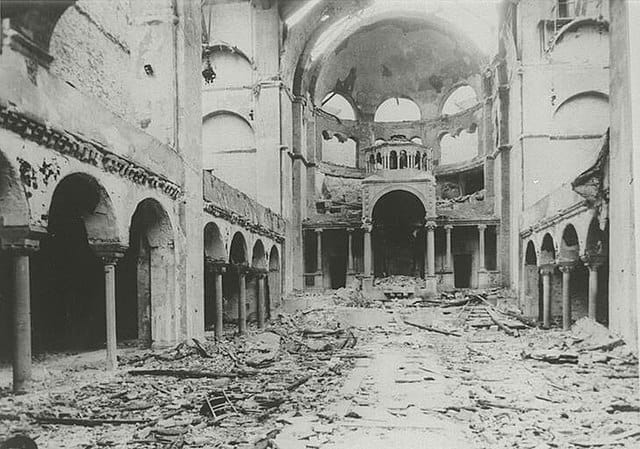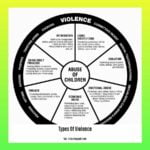85 years ago, on the chilling night of November 9th, 1938, a wave of violence swept across Germany and Austria, forever etching the name Kristallnacht – the “Night of Broken Glass” – into the annals of history. Nazi mobs, fueled by antisemitism, didn’t just shatter the windows of Jewish-owned stores and the stained-glass windows of synagogues; they shattered countless lives, leaving behind a trail of fear, destruction, and a haunting premonition of the horrors to come. Today, as we grapple with a disturbing resurgence of antisemitism, the 85th anniversary of Kristallnacht serves as a chilling reminder of the fragility of peace and the persistent need for vigilance against hate.
The Echoes of Kristallnacht in a Tense World
This year, as the world marks 85 years since Kristallnacht, the anniversary takes on a particularly poignant meaning. The recent conflict between Israel and Hamas, unfolding against the backdrop of this somber commemoration, casts a long shadow, raising unsettling questions about the cyclical nature of history and the deep-seated roots of hatred.
Across Germany, ceremonies and remembrance events were held, a solemn testament to the country’s commitment to never forgetting the atrocities of its past. Schools, community centers, and places of worship hosted talks, exhibitions, and educational programs, ensuring that the lessons of Kristallnacht reverberate through generations. The German government, too, has stepped up its efforts, increasing funding for security at Jewish institutions and launching new initiatives aimed at combating antisemitism through education and awareness.
German Chancellor Olaf Scholz, in his address to the nation, didn’t shy away from acknowledging the unsettling parallels between the past and the present. Labeling recent antisemitic incidents in Germany as “shameful,” he underscored the profound weight of history that Germany carries, particularly as the world remembers the horrors of Kristallnacht in a global climate fraught with tension and division.
Beyond Broken Glass: Unpacking a Complex Legacy
The events of Kristallnacht were a terrifying prelude to the Holocaust, a stark illustration of how quickly prejudice, if left unchecked, can escalate into violence and systematic persecution. The shattered glass that littered the streets of Germany and Austria in 1938 became a chilling symbol of a society teetering on the precipice of darkness.
But the legacy of Kristallnacht extends far beyond the physical destruction. It’s a legacy that continues to shape our understanding of hate, intolerance, and the importance of safeguarding human rights. The anniversary prompts us to confront uncomfortable truths about our own societies. It forces us to ask ourselves: Have we truly learned from the past? Are we doing enough to combat antisemitism and all forms of discrimination in the present?
A Global Call to Action
The 85th anniversary of Kristallnacht is not merely a time for somber reflection; it is a call to action. It’s a stark reminder that the fight against antisemitism and all forms of hate is far from over. The echoes of that terrible night serve as a potent reminder that silence is not an option.
It is on each of us to challenge prejudice and discrimination whenever and wherever we encounter it. It’s about educating ourselves and others, advocating for just and equitable societies, and standing in solidarity with marginalized communities. The memory of Kristallnacht serves as a burning reminder that the pursuit of justice, tolerance, and human dignity is an ongoing journey, a commitment that demands our unwavering attention and action.
“I Will Never Forget It”: Bearing Witness to History
Beyond the historical accounts and political speeches, the most powerful testimonies of Kristallnacht come from those who lived through that horrific night. Survivors like Alex Keuchel, who was just 10 years old in 1938, carry the weight of memory, their words a poignant reminder of the human cost of hatred.
“The terror and violence I witnessed that night will never leave me,” Keuchel shares, his voice trembling with the weight of remembrance. His words, like those of countless other survivors, cut through the veil of time, transporting us back to that fateful night and forcing us to confront the raw, visceral reality of what happened.
These firsthand accounts are more than just stories; they are acts of resistance against forgetting, against the normalization of hate. They serve as a moral compass, guiding us towards a future where such atrocities are never repeated.
Confronting Antisemitism in the 21st Century
Eighty-five years after Kristallnacht, the fight against antisemitism is far from over. If anything, it has become even more urgent. The rise of online hate speech, the proliferation of extremist ideologies, and the increase in hate crimes targeting Jews are all grim reminders that the virus of antisemitism is alive and well, adapting to the 21st century.
Kristallnacht serves as a stark warning about what happens when hatred is allowed to fester and grow unchecked. It’s a chilling reminder that the veneer of civilization is thin, and that even in societies that pride themselves on their tolerance and diversity, the potential for violence and oppression remains.
To effectively combat antisemitism today, we need a multi-pronged approach. Education is paramount. We need to dismantle the harmful stereotypes and conspiracy theories that fuel antisemitism. Open and honest dialogues between different faith groups can help to build bridges of understanding and empathy.
But talk is not enough. We need concrete action. Lawmakers have a responsibility to enact and enforce legislation that protects against hate crimes and discrimination. Social media companies must take responsibility for the spread of hate speech on their platforms. And each of us, in our own lives, can choose to challenge antisemitism whenever we encounter it.
Kristallnacht’s Enduring Lessons for Humanity
The 85th anniversary of Kristallnacht is more than just a historical marker. It’s a stark reminder of the fragility of peace, the insidious nature of hate, and the importance of confronting prejudice in all its forms.
As we remember the victims and honor the survivors, let us use this anniversary as an opportunity to reflect on our own roles in building a more just and compassionate world. Let us commit to challenging hatred, promoting understanding, and ensuring that the words “never again” are not just a slogan, but a promise we strive to keep each and every day.
Discover the Kristallnacht book that sheds light on the horrors of the Nazi pogrom and its lasting legacy.
Sail through the annals of history with the Mayflower ship manifest, a precious record of the Pilgrims’ voyage that shaped America’s destiny.
- SYBAU See You Baby Meaning: Gen Z Slang Evolves - July 1, 2025
- Unlock Your Inner Youth: Lifestyle Secrets for a Vibrant Life - July 1, 2025
- Decode SYBAU Meaning: Gen Z Slang Explained - July 1, 2025







1 thought on “Kristallnacht 85 Years On: Remembering the Past, Confronting the Present”
Comments are closed.